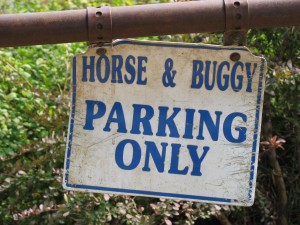Sad to say, just one year after the affirmations of Anglican Church unity made at the Lambeth Conference of 2008, the USA Anglicans have decided that one year was enough of a wait. Their recent decision to affirm same sex relationships will deepen the split in the world-wide communion. All the Lambeth conversation groups (‘indabering’) bought only one year’s reprieve.
The efforts of the Archbishop of Canterbury have proved fruitless as he admits in his 27 July reflections to the world-wide Anglican Communion, Communion, Covenant and our Anglican Future which concerns the decision of the Anglican Church of the USA (TEC) at their 2009 General Convention to affirm same sex relationships.
The reflections contain his strong statement of the unacceptability of same sex relationships:
‘. . . a blessing for a same-sex union cannot have the authority of the Church Catholic, or even of the Communion as a whole. And if this is the case, a person living in such a union is in the same case as a heterosexual person living in a sexual relationship outside the marriage bond; whatever the human respect and pastoral sensitivity such persons must be given, their chosen lifestyle is not one that the Church’s teaching sanctions, and thus it is hard to see how they can act in the necessarily representative role that the ordained ministry, especially the episcopate, requires.’ (Paragraph 8.)
‘the question is not a simple one of human rights or human dignity. It is that a certain choice of lifestyle has certain consequences. So long as the Church Catholic, or even the Communion as a whole does not bless same-sex unions, a person living in such a union cannot without serious incongruity have a representative function in a Church whose public teaching is at odds with their lifestyle.’ (9)
‘if society changes its attitudes, that change does not of itself count as a reason for the Church to change its discipline.’ (10)
The Archbishop also reflects on the necessity for a local church to walk in step with the wider Church when discerning God’s will on sensitive and controversial issues. (Paragraphs 11, 12)
Further reflections of the Archbishop concern:
- Two styles or two ‘tracks’ of being Anglican. (Paragraphs 23, 24)
- Covenant process to continue. (Paragraphs 20-22)
- Can a diocese within a province opt in to the covenant and relationships with like minded dioceses/provinces? (Paragraph 25)
See also Archbishop admits Anglican Church is split from Ruth Gedhill, TimesOnline 28 July.
Other observers such as Bishop Tom Wright are also critical of the USA Anglicans and pessimistic about any rapprochement with the world-wide Anglican Communion, ‘The Americans know this will end in schism’,
‘Support by US Episcopalians for homosexual clergy is contrary to Anglican faith and tradition. They are leaving the family’
‘Our supposedly selfish genes crave a variety of sexual possibilities. But Jewish, Christian and Muslim teachers have always insisted that lifelong man-plus-woman marriage is the proper context for sexual intercourse. This is not (as is frequently suggested) an arbitrary rule, dualistic in overtone and killjoy in intention. It is a deep structural reflection of the belief in a creator God who has entered into covenant both with his creation and with his people (who carry forward his purposes for that creation).’
The call of Christ is a call to a radical critique of our culture. The way of Christ challenges culture. When we allow culture to dominate the counter-culture of Christ we fail God, the Church and the world.
I remain convinced that a more open and robust conversation between bishops at the Lambeth Conference 2008 would have shortened the pain of separation.
In my Lambeth Conference 2008 Report I gave the Moratoria and the future unity of our Anglican Communion 3 years to work its way through. I exaggerated – it took barely one year to dash our hopes of Anglican unity based on orthodoxy. It is just all so sad.



